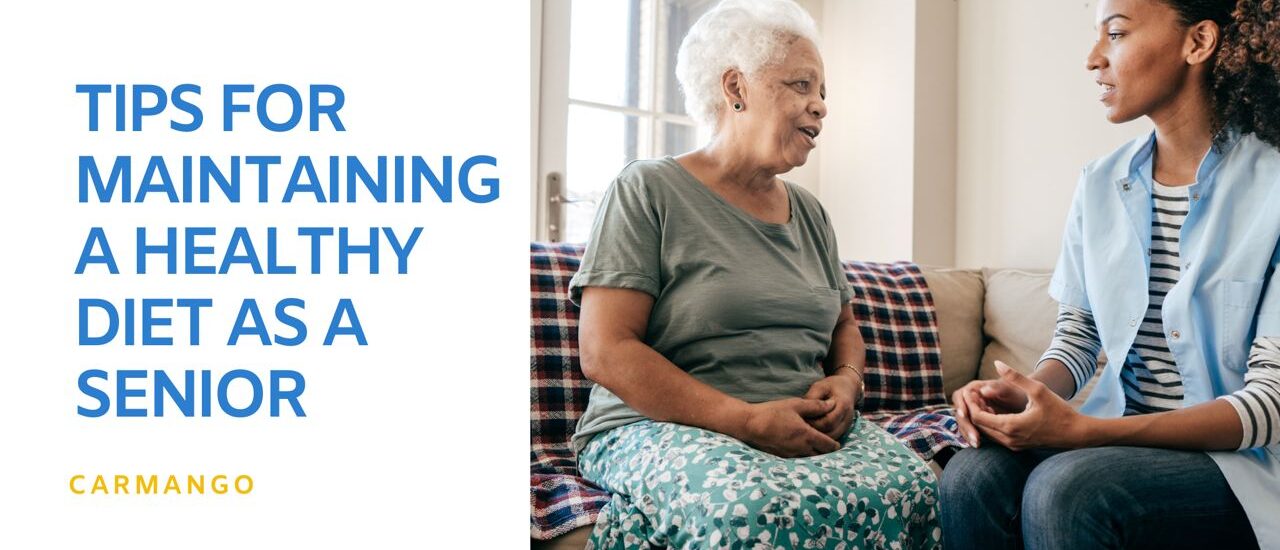Food is not just fuel; it’s nourishment for our bodies and souls, especially as we gracefully age. A balanced and nutritious diet plays a vital role in maintaining good health and enhancing the quality of life, particularly for seniors. In this blog post, we’ll explore some valuable tips to help seniors maintain a healthy and vibrant diet.
1. Prioritize Nutrient-Dense Foods:
As we age, our caloric needs may decrease, making every bite count. Opt for nutrient-dense foods like fruits, vegetables, lean proteins, whole grains, and low-fat dairy to get the most nutrients per serving.
2. A Rainbow on Your Plate:
Make your meals colorful by incorporating a variety of fruits and vegetables. Different colors represent different nutrients, so aim for a rainbow on your plate to ensure a well-rounded diet.
3. Mindful Portion Control:
Be mindful of portion sizes to avoid overeating. Use smaller plates and bowls to help control portions and prevent overconsumption.
4. Stay Hydrated:
Drinking enough water is crucial for overall health and can aid in digestion, appetite control, and energy levels. Aim for at least 8 cups of water per day, or adjust based on your individual needs.
5. Choose Healthy Fats:
Opt for sources of healthy fats like avocados, nuts, seeds, and olive oil. These fats are essential for brain health and can help in reducing the risk of heart disease.
6. Monitor Sodium Intake:
Limit sodium intake to maintain healthy blood pressure levels. Avoid processed and packaged foods, and opt for fresh, whole foods prepared with minimal salt.
7. Prioritize Calcium and Vitamin D:
Ensure adequate intake of calcium and vitamin D for bone health. Include dairy products, leafy greens, and fortified foods in your diet.
8. Regular Protein Intake:
Incorporate protein-rich foods like lean meats, poultry, fish, beans, and tofu into your meals to support muscle health and repair.
9. Limit Sugary Foods and Beverages:
Reduce consumption of sugary snacks and drinks, as excessive sugar can lead to weight gain, diabetes, and other health issues.
10. Consult a Nutritionist:
Consider consulting a registered dietitian or nutritionist for personalized dietary recommendations that suit your specific health needs and lifestyle.
At Caremango Senior Services, we understand the importance of a healthy and well-balanced diet for seniors. Our caregivers work closely with seniors to ensure their dietary needs are met, promoting health and vitality in every meal.
Remember, food is not just sustenance; it’s a way to show love and care for your body. Let’s embrace a healthy diet and savor the journey of aging gracefully!





Hi there mates, its impressive article concerning tutoringand completely explained, keep it
up all the time.
This design is incredible! You obviously know how to keep a reader
amused. Between your wit and your videos, I was almost
moved to start my own blog (well, almost…HaHa!) Excellent job.
I really enjoyed what you had to say, and more than that, how
you presented it. Too cool!